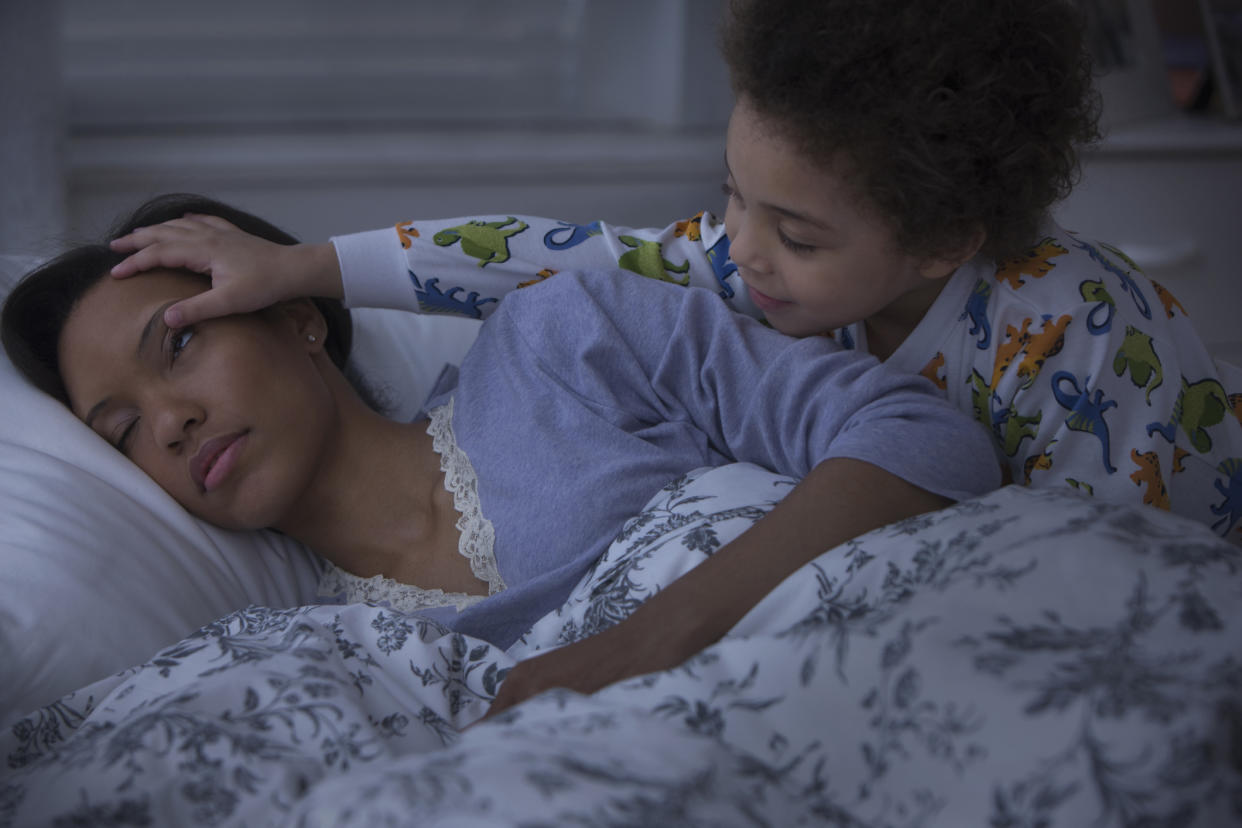World Sleep Day: What to do if your child suddenly starts waking up in the night

Remember the first few months/years of parenting when getting more than a few hours sleep was considered a good night?
Fast forward to the end of the baby and toddler years and with any luck you’re getting way more shut-eye, but just when you think you’ve got this whole sleeping thing licked, your child starts waking up in the middle of the night. Nooooooo!
Aside from sending parents hurtling right back to those dark, sleep-deprived days, night time wakings could be having a pretty big impact on little ones health and wellbeing.
According to the NHS we should be aiming for children aged two to four years getting 11 hours and 30 minutes of night time sleep.
At 5, they should be getting 11 hours, then the time should be reduced by 15 minute increments year on year until they reach around 13 years old.
Obviously, however, if they’re waking up several times during the night, it’s going to be difficult for them to achieve this holy sleep grail.
But poor sleep in children has been linked to a greater risk of obesity, lower immunity, and mental health issues, so if you do get a sudden night time waker, it’s pretty important to get their snoozing back on track.
With that in mind and to celebrate World Sleep Day, here’s our expert backed tips on what to do when your child throws you a sleep curveball.
Find out what’s causing the problem
According to ames Wilson aka The Sleep Geek if your child suddenly starts waking in the night you should first try to discover what is triggering the wakening.
“Are they too hot, too cold, is there light or noise getting into their room? Is a pet disturbing them (this is more common than you think!)? Are they stressed and anxious? Do they seem to be searching for a particular parent?”
If you can identify the problem, then you can start to tackle it.
Read more: More than a quarter of children not getting enough sleep

Sort their wake-up triggers
Too hot, too cold, too hungry....there are a number of reasons children might wake up in the middle of the night.
“If they are too stimulated or energetic before they go to bed, they may also find it hard to fall into a deep sleep,” explains Sleep Expert Oliver Elliot at Nectar Sleep
"They might have had a nightmare and so a small dim light to remind them they're in a safe space may help them return to sleep or taking a comfort toy to bed might help your child not feel so alone at night."
If you suspect they are too hot or too cold, Wilson suggests bamboo bedding to help keep little ones at the right temperature.
“If they seem to miss a parent, you could give them something that smells of that parent, such as putting an old t-shirt on a teddy, or giving them something that is important to you and you telling them you will be back for it in the morning,” Wilson says.
“Pictures of the family round the bed can be reassuring too.”
Read more: Parents can now buy their kids an 'anti-nightmare mist'
Teach your child to self-settle
Oliver Elliot says children can naturally wake up several times during the night and this can disturb their sleep anything from a few seconds to a few minutes.
“The trick is to teach your child to self settle at the start of the night,” he says. “This will hopefully become learned behaviour and they will be able to autonomously go back to sleep without waking their parents up every time their sleep is interrupted.”

Sort a pre-bedtime routine
When they were babies you knew the power of the bath, book, bed routine, but even though they’re now older a good bedtime routine is still worth it’s weight in Zzzs.
“A bedtime routine is crucial to ensuring your child sleeps through the night; going to bed too early can be equally as disruptive to their sleeping pattern as going to bed too late,” explains Elliot.
“Create a relaxing space for your child and avoiding anything that may stimulate them such as TVs, computers and bright lights. Quiet time, reading and even soft music will help prepare your child for sleep.”
Read more: Pippa Middleton's baby son Arthur is seeing a cranial osteopath to 'help his sleep'
Arm children with back-to-sleep tools
They seemed to drift off ok, but now it’s 3am and you have a small child peeling open your eyelids to tell you they can’t sleep. Gah! To stop night time parental pitstops Elliot has a few recommendations for helping them stay in their beds.
"You can teach your child to relax their thinking once the lights have gone out and to also do steady breathing and relaxation exercises if they’re finding it hard to sleep,” he suggests. “Show them how they can distract themselves without needing to seek their parents for comfort.”
if they are coming into your room or trying to get into bed with you and you don’t want them to, Wilson suggests gently taking them back to bed, with a simple mantra like, “it is night time, go to sleep.”



